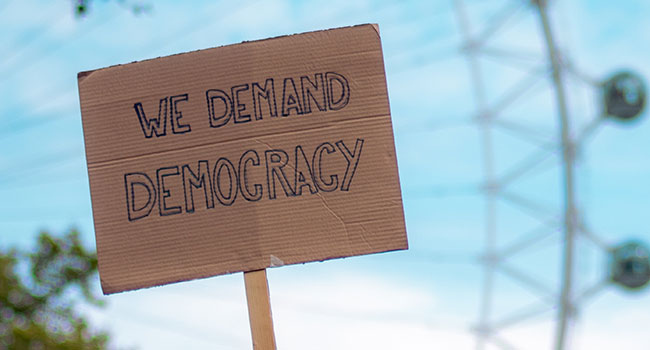 After months of hemming and hawing, Prime Minister Justin Trudeau finally put the proverbial dagger in a significant campaign promise: “2015 will be the last federal election conducted under the first-past-the-post voting system.”
After months of hemming and hawing, Prime Minister Justin Trudeau finally put the proverbial dagger in a significant campaign promise: “2015 will be the last federal election conducted under the first-past-the-post voting system.”
In his recent mandate letter to the minister of Democratic Institutions, Karina Gould, he acknowledged the “tremendous work by the House of Commons Special Committee on Electoral Reform, outreach by members of Parliament by all parties, and engagement of 360,000 individuals in Canada through mydemocracy.ca.” But a “clear preference for a new electoral system, let alone a consensus, has not emerged,” Trudeau wrote, and “a referendum would not be in Canada’s interest.”
That’s why the PM bluntly told his new minister, “Changing the electoral system will not be in your mandate.”
Many Canadians were disappointed with this announcement, along with electoral reform advocacy groups like Leadnow and Fair Vote Canada.
Several Liberal MPs even spoke out. Nathaniel Erskine-Smith wrote in a Feb. 2 piece for Huffington Post, “I am disappointed that we have broken our promise, and I strongly disagree with our government’s decision to abandon electoral reform.” Adam Vaughan told CTV’s Question Period that this government “made a commitment and we are not fulfilling that commitment. I think we’ll be held accountable for it and that’s as it should be.”
Good for them.
At the same time, they shouldn’t have been terribly surprised.
The Liberals had little to no enthusiasm about electoral reform after the 2015 election. The political messaging was all over the map, from strong support to barely a shrug. A rookie MP, Maryam Monsef, was the minister originally in charge of this file – and she badly fumbled this political football almost from the very beginning.
The Liberals also showed their cards early by supporting the preferential ballot to replace first-past-the-post (FPTP).
This wasn’t surprising, either. Preferential ballots allow people to rank their political choices. While the Liberals have never been the first choice of all Canadians, they traditionally rank as the second choice of most non-Liberal Canadians.
The preferential ballot would have therefore been a better political strategy for the Liberals than FPTP. It would have solidified their position as Canada’s so-called natural governing party, and badly stunted the growth of the Conservatives, New Democrats and smaller parties.
Meanwhile, the fact that the Liberals ‘lost’ this battle will hardly cause them to shed any tears. They’ve formed the federal government for more than 77 per cent of our country’s history since the end of the Second World War. Sticking with FPTP is still to their political advantage and this broken promise likely won’t cost them at the ballot box.
But while electoral reform is dead for now, it won’t be forever.
Most Organization for Economic Co-operation and Development (OECD) countries use some form of proportional representation (PR). Canada is one of the few that doesn’t. There are viable models to consider, including mixed-member proportional (MMP), alternative vote (AV) and single transferable vote (STV).
Alas, many Canadians remain confused by the lofty alphabet soup of PR models. This has led to several high-profile failures on the provincial front, including B.C.’s 2005 and 2009 referendums on STV, and Ontario’s 2007 referendum on MMP.
As one of the few small ‘c’ conservatives who supports electoral reform, here’s what I would suggest going forward:
First, unite behind one PR model. I would propose MMP, a hybrid of two votes: political representative (party list PR) and political party (usually FPTP).
Second, create literature and websites explaining why this model would work well in Canada.
Third, ensure that the language and theories are easy to understand.
Fourth, stick to the basics and don’t manufacture ludicrous scenarios that cause unnecessary consternation.
This is the best way to achieve electoral reform in Canada.
The next party leader, or prime minister, to take up this challenge remains to be seen. Hopefully, he or she will follow through.
Michael Taube, a Troy Media syndicated columnist and Washington Times contributor, was a speechwriter for former prime minister Stephen Harper. He holds a master’s degree in comparative politics from the London School of Economics.
The views, opinions and positions expressed by columnists and contributors are the author’s alone. They do not inherently or expressly reflect the views, opinions and/or positions of our publication.
